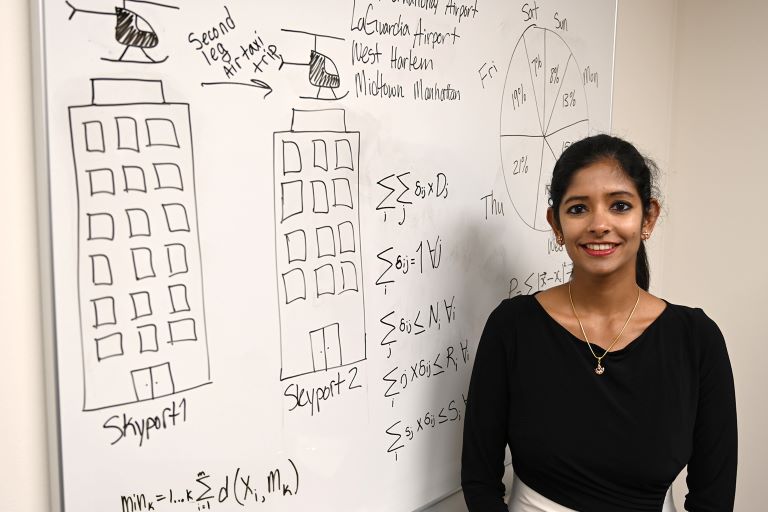October 29, 2025
An international, NSF-funded collaboration supports research and contributes to the development of a globally engaged workforce.

At Mizzou Engineering, we go all-in on new educational methods and technologies so our students can become professionals who transform lives around the world.
Suchi Rajendran, associate professor and director of undergraduate studies in the Department of Industrial and Systems Engineering, spent the last three summers working with students to discover ways to use artificial intelligence to make advanced air mobility a reality.
“The very first thing that people ask me is, ‘Are you in the real world or not?’” Rajendran said. “We’re not there yet, but flying taxis are definitely around the corner.”
For the past three summers, Rajendran has travelled with U.S. students to the Indian Institute of Technology Madras as part of the International Research Experiences for Students (IRES) program funded by the National Science Foundation.
The IRES program supports international research and research-related activities for U.S. science and engineering students and contributes to the development of a globally engaged workforce with world-class skills.
In India, Rajendran’s students collaborated with local researchers, answering foundational questions to determine if air taxi service is actually viable.
“Our skill sets complemented each other,” she said. “While the local team was looking at the design, we were looking at the operations. The main focus was on developing the ‘nervous system’ of the air taxi network.”
Students used geographic information system data for Bangalore to build a model. By layering maps of population density, traffic congestion, public transit hubs and airspace restrictions, they created a powerful tool to create a shortlist of locations for site assessment and discussion with city planners.
By living and working in India, they also extended their personal and professional growth.
“This experience fosters more than just technical skills,” Rajendran said. “It builds students’ genuine adaptability, improves their cross-cultural communication and provides direct experience in a demanding startup environment.”
Rajendran’s involvement with IRES stems from twin desires to train the next generation of engineering leaders and to help people to understand how engineering is shaping the future, she said.
Advanced air mobility may seem impossibly far away, but Rajendran says cities will need at least a decade to prepare for implementation.
“Air taxis will change how we move through cities,” she said. “But first, we have to work out the logistics.”
Gain hands-on research experience with cutting-edge technology. Choose Mizzou Engineering!